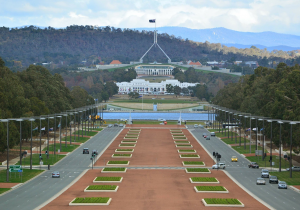At the end of last month, the Federal Court made orders in the Universal v TPG litigation. The results were not unexpected and the key areas of dispute related to costs of complying with the orders and costs of the litigation.

Background
Universal and other copyright owners took action under section 115A of the Copyright Act against 20 ISPs, including TPG, to block access to a torrenting website, and associated clones, mirrors and proxy sites. The website was found to have the main purpose of allowing wide-scale downloading of copyright works, including music, movies and books.
Section 115A was added to the Copyright Act in 2015 and allows copyright owners to apply for an injunction requiring a carriage service provider to take reasonable steps to disable access to an online location – in Australia or overseas – which has the primary purpose of infringing, or facilitating the infringement of, copyright. There doesn’t need to be any fault on the part of the ISP for orders to be made.
Section 115A had already been used in the Roadshow v Telstra, Foxtel v TPG decision last year, with similar results.
The offending website in this case, KickassTorrents (KAT) had previously been blocked in Britain, Ireland, Denmark, Italy, Finland and Belgium and had then been shut down in July 2016 following the arrest of the alleged owner, but the case went ahead.
The ISPs had indicated even before that date that they were prepared to block access to the offending sites, but the key question remained as to who should bear the cost of implementing and maintaining the site blocking.
The copyright owners argued that the ISPs should bear the costs because they are subject to the regulatory framework. The ISPs argued that they are innocent parties in the infringement, that section 115A creates a no-fault regime, and that the orders under section 115A benefit the rights holders.
Orders
The Court ordered that the ISPs must:
– disable access by users of their service, to the infringing website, by DNS blocking or equivalent.
– redirect users to a page with a prominent message that the Court has determined the site infringes copyright, or facilitates infringement.
– block additional domain names if the copyright owners apply to extend the injunction. These orders may be made without further hearing if the ISPs do not object.
The copyright owners will be required to pay the ISPs’ compliance costs, set at $50 per domain name. The Court, noting that the submissions on costs were similar to the submissions made in the Roadshow v Telstra, Foxtel v TPG case last year, supported a uniform approach to compliance costs. If costs exceed this amount, the ISPs will have to bear the additional amount.
The ISPs had also sought orders for costs of the litigation. The Court determined that the copyright owners should pay the ISPs’ costs for the limited area of evidence and submissions on compliance costs, but not the ISPs’ other costs.
Further developments
In February, Village Roadshow commenced a new action to block access to 41 websites including WatchSeries, Putlocker and MegaShare.
There have been reports that Village Roadshow and Foxtel will apply to block additional websites shortly.
There have also been reports that KAT has been revived in a new form by original staff members, with new domain names and a streamlined database, and a revised DMCA takedown procedure. The orders allow copyright owners to apply to block new domain names but this can only be reactive. With torrenting websites potentially able to use a huge number of domain names and structures, it will be interesting to see how much practical protection section 115A will provide to rights holders as cases develop over the coming months – especially when Gizmodo reports that “It’s laughably easy to circumvent Australia’s torrent site blocking”.


 Here is a round-up of some key developments in 2016:
Here is a round-up of some key developments in 2016: